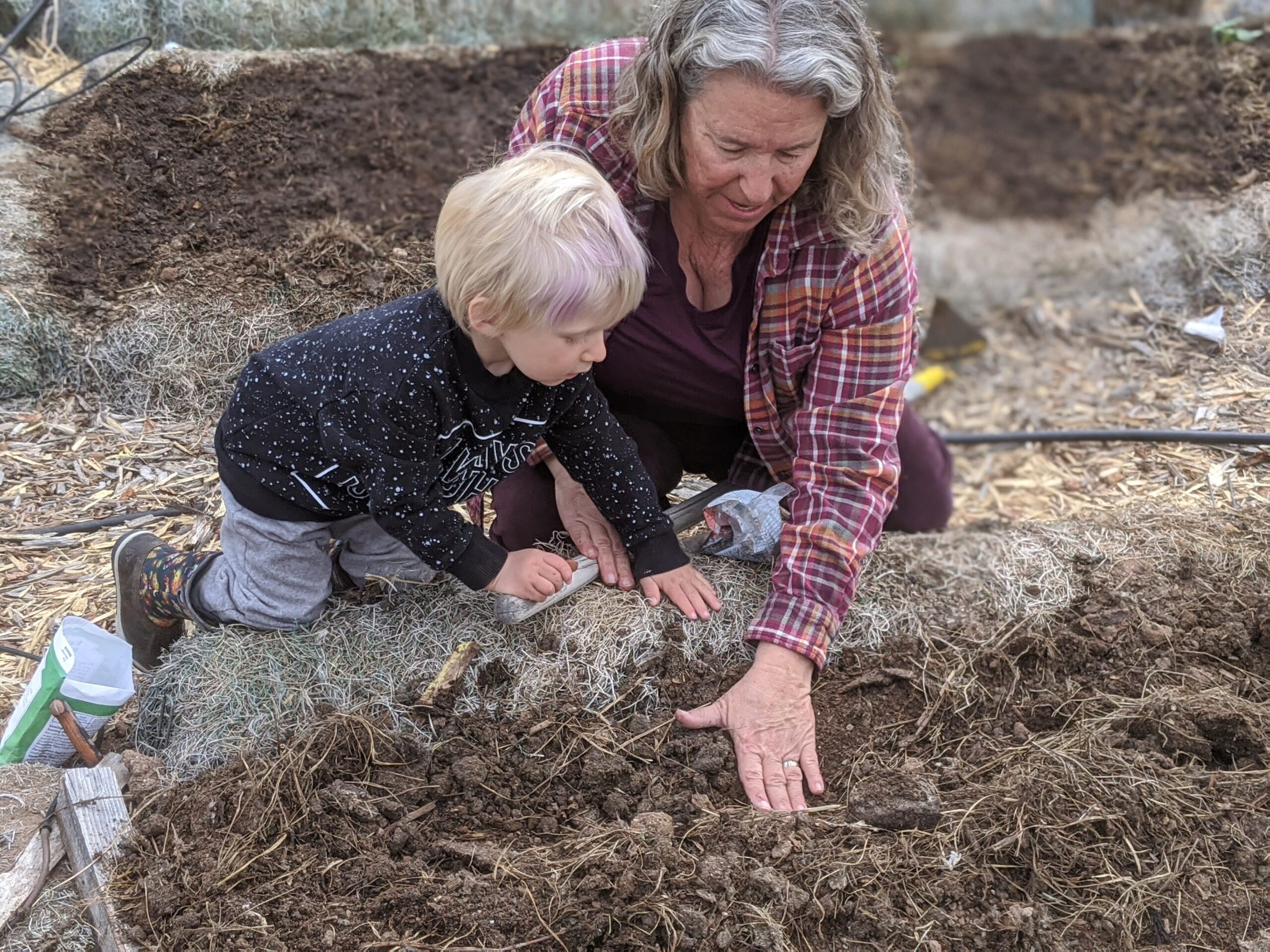At Mannsdale Upper Elementary School (MUES) in Madison, Mississippi, third- to fifth-grade students work together to grow and sell produce in a multitude of ways. Trays of microgreens thrive under grow lights. More than 20 hydroponic stations produce lettuce, bok choy, cucumbers, and more. Seasonal fruits and vegetables grow throughout the year in 39 raised beds, and the school's flock of free-range chickens roams between the garden and wildflower meadows. This extraordinary operation is helmed by the students, some of whom are graduates of the Junior Master Gardener program hosted at the school, and by Physical Education teacher Rolando Román, M.Ed.

Román joined the MUES faculty in 2019 after decades of working as a Health & Wellness Program Manager for the University of Texas and as a corporate Executive Health Coach. His goal was to establish a comprehensive physical education program for kids that centered on wellness through athletics, gardening, and outdoor adventures. "My personal philosophy of education and teaching is to incorporate activities that teach the whole student," says Román. "I believe we must include opportunities to address social and emotional issues through inclusive, experiential learning." As a gardener himself, Román knew incorporating garden-based learning was a great way to accomplish this. His first step was to grow the school's existing outdoor garden into a more extensive program with which the whole school could connect.
"We started our Junior Master Gardener program four years ago, and our goal was to make our initiative sustainable," says Román. "That same year, we launched our first community farmers market at the school, and it was a huge success. It allows our students to learn about starting a business and being an entrepreneur." With funding from the farmer's markets, community partners, and various grants, Román grew the MUES garden to include 39 raised beds and multiple hydroponic stations of varying sizes in the school's classrooms, greenhouse, and communal spaces. He incorporated gardening into his physical education curriculum, and teachers also began using the stations for STEM education.

Román with MUES Garden Club members.
As the garden grew, so did student interest. In 2021, Román started the MUES Garden Club, offering before- and after-school meeting times for kids to garden, and had to cap members when sign-ups reached a hundred. "That represents 30% of our 4th- and 5th-grade student body," Román exclaims. Today, the MUES Garden Club starts all their plants by seed in the school's greenhouse, transplanting some to the garden beds and some to the hydroponic systems throughout the year. "We use this process as an educational moment to incorporate terms like germination, seedlings, photosynthesis, chlorophyll, space, and area into our program to nudge terms they are or will be learning in their science, math, and language art classes," he says.
In 2022 the club started growing microgreens on a big scale. "It has been so much fun," says Román. "Microgreens allow us to see the cycle from seed to harvest happen in two weeks, which is fascinating! It's so easy and offers nearly instant gratification!" Students are growing micro radish greens, broccoli greens, salad greens, wheatgrass, and more. The microgreens are used to make smoothies, sell at the farmer's market, and even supply a local juice bar.
MUES Garden Club members are responsible for running the school's monthly farmer's market. "The students come in early and set up, and they oversee the displays, the checkout, and the cleanup afterward," says Román. Club members typically sell around 75 gallons of mixed greens each month, as well as kale, beets, carrots, micro greens, plant starters, and eggs from the school's flock. Students have even started their own gardens at home, with some using their new entrepreneurial skills to sell tomato plants or homemade pickles.
In collaboration with Madison County Master Gardeners, the Junior Master Gardener certification class continues today, and local Master Gardeners volunteer to help out with Garden Club meetings. But certification isn't all work and no play. "We celebrate the conclusion of our four-session Junior Master Gardener class with a smoothie party in which we incorporate greens and berries from our garden," says Román. "We also do sampling in which kids can rank the best-tasting salad dressing. A fun way to have them sample carrots, radishes, turnips, and greens without realizing our objective was for them to try these veggies."

Junior Master Gardeners enjoy a MUES garden smoothie.
"Our partnerships have been an important pillar of our program," says Román. "Keep Mississippi Beautiful (KMB) is an organization that inspires and educates Mississippians to improve their communities by preventing litter and promoting recycling and beautification. They encourage all citizens to be responsible for improving the State's scenic beauty and quality of life." In November of 2022, the MUES Garden Club and Junior Master Gardeners completed a 900-square-foot wildflower meadow beautification project in partnership with KMB. The second meadow of its kind at MUES, the space was planned, fenced, and planted by the students with Forever Susan Asiatic Lily bulbs, a wildflower seed mix for the Southeast, and seeds for perennial wildflowers, all from American Meadows.

With the MUES garden program well established, Román has turned his sights on helping other schools join the movement by sharing information and plants. "Our goal is to support other schools locally and nationally to incorporate these initiatives at their school," says Román. "We want this initiative to become part of the curriculum rather than a 'cool school program.' We would also like to see programs started at the feeder schools within our district, so our participants have a place to garden when they move on to middle and high school."




